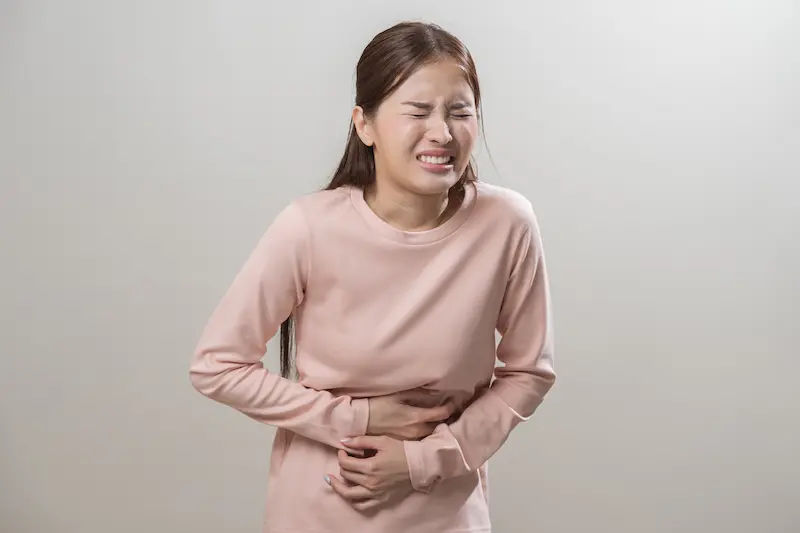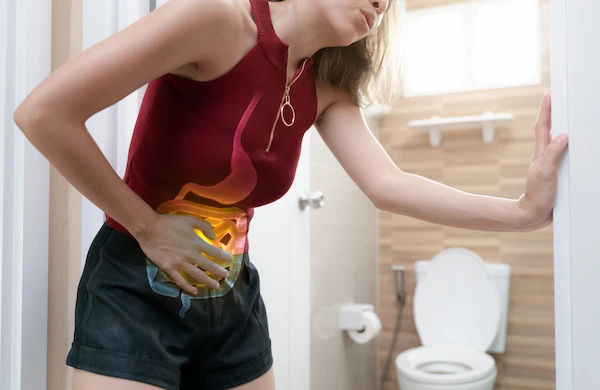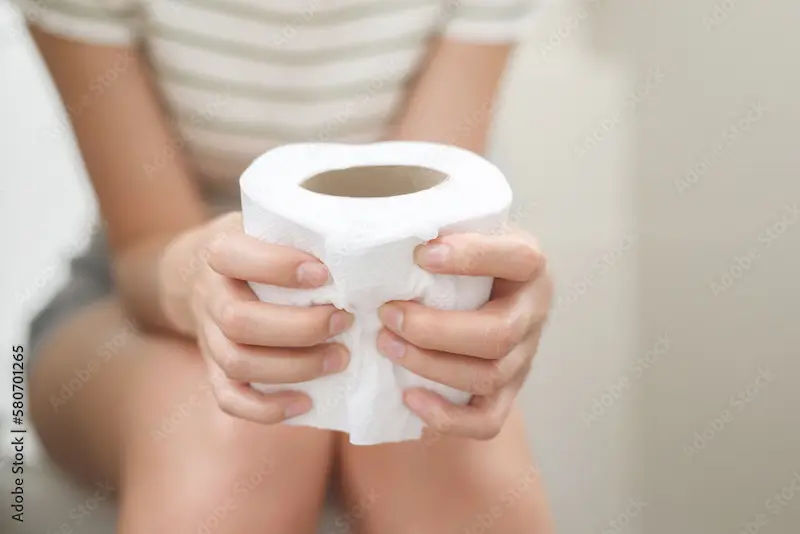The Essential Guide to Loose Motions: Everything You Need to Know
Know about the loose motions, what it is, causes, symptoms, dehydration and its role, what to eat and avoid, prevention, effective home remedies, when to see a doctor and more.

Written by Dr. Shaik Abdul Kalam
Reviewed by Dr. Dhankecha Mayank Dineshbhai MBBS
Last updated on 13th Jan, 2026
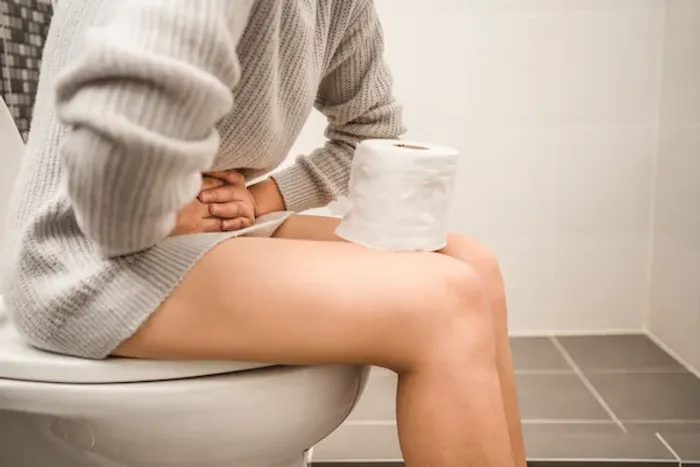
Introduction
Loose motions, medically known as diarrhoea, are an experience almost everyone faces at some point. It's more than just a minor inconvenience; it's your body's way of rapidly expelling something harmful. While often short-lived, understanding the things everybody ought to know about loose motions is crucial for effective management and knowing when to seek serious medical help. This comprehensive guide goes beyond basic advice, diving into the causes, symptoms, and truly effective treatments. Whether you're looking for immediate relief or long-term prevention strategies, this article will equip you with the knowledge to handle this common ailment confidently and safely.
What Exactly Are Loose Motions? More Than Just an Inconvenience
Loose motions are characterised by the passage of loose, watery stools three or more times a day. It occurs when the digestive system doesn't absorb enough water from the food and liquids you consume, or when it secretes extra fluid into the intestines, resulting in a hurried trip to the bathroom. This process, while uncomfortable, is often a protective mechanism to flush out toxins, viruses, or bacteria from your gut.
Consult a Top General Practitioner for Personalised Advice
Acute vs. Chronic Diarrhoea: Understanding the Difference
The duration of your symptoms is a key indicator of the underlying cause.
Acute Diarrhoea: This is the most common type, typically lasting a few days to a week. It's usually caused by a viral or bacterial infection (like gastroenteritis or food poisoning) and resolves on its own with proper care.
Chronic Diarrhoea: If loose motions persist for more than two weeks, it's considered chronic. This can be a sign of an underlying health condition such as Irritable Bowel Syndrome (IBS), Inflammatory Bowel Disease (IBD, like Crohn's disease or ulcerative colitis), celiac disease, or a chronic infection. Persistent symptoms warrant a professional diagnosis.
The Common Culprits: What Causes Loose Motions?
Understanding the cause is the first step towards effective treatment. The triggers can be broadly categorised.
Infectious Causes: Viruses, Bacteria, and Parasites
This is the primary cause of acute episodes.
Viruses: Norovirus and Rotavirus are infamous for causing rapid-onset vomiting and watery diarrhoea, often spreading quickly through communities.
Bacteria: Contaminated food or water can introduce bacteria like E. coli, Salmonella, and Campylobacter. This often leads to more severe symptoms, including bloody stools (dysentery) and high fever.
Parasites: Organisms like Giardia can cause prolonged loose motions and are often contracted from contaminated water sources.
Non-Infectious Causes: Food, Medicine, and Underlying Conditions
Not all diarrhoea is caused by germs.
Food Intolerances: Difficulty digesting certain substances like lactose (in dairy) or fructose can lead to diarrhoea after consumption.
Medications: Antibiotics are a common culprit, as they can disrupt the natural balance of good and bad bacteria in your gut. Other drugs, like antacids containing magnesium, can also cause it.
Underlying Medical Conditions: As mentioned, chronic loose motions can be a symptom of IBS, IBD, or thyroid disorders.
Recognising the Signs: Symptoms That Accompany Loose Motions
Diarrhoea rarely travels alone. Be aware of these accompanying symptoms:
Abdominal cramps or pain
Bloating and nausea
Urgent need to have a bowel movement
Fever and chills (indicating an infection)
Blood or mucus in the stool
Vomiting
The Dehydration Danger: The Most Critical Complication to Watch For
The biggest risk from severe loose motion is dehydration. Your body loses vast amounts of water and essential electrolytes (like sodium and potassium) with each watery stool. This can become serious, especially for young children and the elderly.
Signs of Dehydration in Adults and Children
In Adults: Extreme thirst, dark yellow urine, dry mouth and skin, fatigue, dizziness, and decreased urine output.
In Infants & Children: No wet diapers for 3 hours, sunken eyes or cheeks, a sunken soft spot on the skull, listlessness or irritability, and crying without tears.
If you or your child shows signs of severe dehydration, it is a medical emergency.
What to Eat and Drink (and What to Avoid) During Loose Motions
Diet plays a pivotal role in recovery. The goal is to soothe the gut and replenish lost fluids and nutrients.
The Best Fluids for Rehydration
Plain water is good, but it doesn't replace electrolytes. The best option is an Oral Rehydration Solution (ORS). ORS packets are available at pharmacies; you mix them with clean water. They are scientifically formulated to optimise fluid absorption. Clear broths and diluted fruit juices (without pulp) are also helpful.
A Guide to the "Eat" and "Avoid" Food Lists
Eat (The "BRAT" diet and beyond): The BRAT diet (Bananas, Rice, Applesauce, Toast) is a good starting point, as these foods are binding and easy to digest. Also include:
* Boiled potatoes (without skin)
* Plain crackers or khichdi (a lentil and rice dish)
* Yoghurt with live cultures (probiotics) can help restore gut bacteria.
Avoid: Fatty, spicy, or sugary foods, dairy products (except yogurt), caffeine, alcohol, and high-fibre foods like raw vegetables and beans. These can irritate your digestive system further.
Effective Home Remedies and Over-the-Counter Solutions
For mild cases, several approaches can provide relief:
Rest: Your body needs energy to fight the infection.
Probiotics: Found in yoghurt or supplements, they help repopulate your gut with good bacteria, especially after a course of antibiotics.
Ginger or Peppermint Tea Can help soothe nausea and stomach cramps.
Over-the-Counter (OTC) Medication: Drugs like loperamide can help stop watery diarrhoea fast by slowing down gut movement. However, use them with caution. If a bacterial infection is the cause, these medications can trap the bacteria inside, prolonging the illness. It's often best to let the body flush the irritant out first.
When It's Time to Seek Professional Help: Red Flags
While most cases resolve at home, certain symptoms demand medical attention. Consult a doctor if you experience:
Diarrhoea lasting more than 48 hours (or 24 hours for children).
Signs of severe dehydration.
Severe abdominal or rectal pain.
A fever above 102°F (39°C).
Stools containing blood or pus.
Black, tarry stools.
If your condition does not improve after trying these methods, book a physical visit to a doctor with Apollo24|7 for a proper diagnosis and treatment plan. For persistent or unexplained chronic diarrhoea, Apollo24|7 offers convenient home collection for tests like stool culture or blood tests to identify the underlying cause.
Prevention is Key: How to Stop Loose Motions Before They Start
Good hygiene is your best defense.
Wash Hands Thoroughly: Use soap and water, especially after using the toilet, changing diapers, and before handling food.
Practice Food Safety: Cook food thoroughly, avoid unpasteurized dairy, and wash fruits and vegetables.
Drink Safe Water: When in doubt, drink bottled or boiled water, especially while travelling.
Conclusion
Dealing with loose motions is never pleasant, but being informed transforms a stressful situation into a manageable one. By understanding the causes, prioritising hydration, and following a gut-friendly diet, you can support your body's natural recovery process. Most importantly, knowing the warning signs empowers you to seek timely medical help when necessary. Remember, this common ailment is usually short-lived, but your vigilance makes all the difference in ensuring a swift and safe return to health. Listen to your body, and don't hesitate to consult a healthcare professional if your instincts tell you something is wrong.
Consult a Top General Practitioner for Personalised Advice
Consult a Top General Practitioner for Personalised Advice

Dr. Rajib Ghose
General Physician/ Internal Medicine Specialist
25 Years • MBBS
East Midnapore
VIVEKANANDA SEBA SADAN, East Midnapore

Dr Suseela
General Physician
5 Years • MBBS
Bengaluru
Apollo Medical Center, Marathahalli, Bengaluru

Dr. Ashita Kuruvilla
General Practitioner
7 Years • MBBS
Kolkata
KVC CLINIC, Kolkata

Dr. Debdatta Pati
Psychiatrist
18 Years • MBBS, DPM, MD (PSYCHIATRY)
Kolkata
MCR SUPER SPECIALITY POLY CLINIC & PATHOLOGY, Kolkata
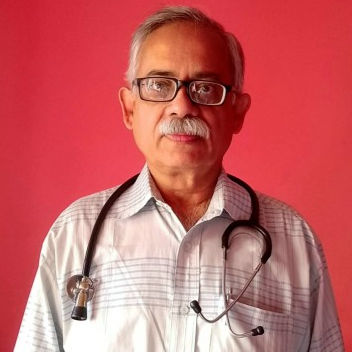
Dr. Pinaki Mukhopadhyay
General Physician/ Internal Medicine Specialist
32 Years • MBBS
Kolkata
MCR SUPER SPECIALITY POLY CLINIC & PATHOLOGY, Kolkata
(25+ Patients)
More articles from Diarrhea
Frequently Asked Questions
1. What is the difference between diarrhoea and dysentery?
Diarrhoea refers to loose, watery stools. Dysentery is a specific type of severe diarrhoea where there is blood and mucus in the stools, usually caused by a bacterial or parasitic infection. All dysentery is diarrhoea, but not all diarrhoea is dysentery.
2. Are probiotics effective for treating loose motions?
Yes, probiotics can be very effective, particularly for diarrhoea caused by antibiotics. They help restore the balance of healthy bacteria in your gut. For infectious diarrhoea, certain strains may help shorten the duration.
3. What should I eat after the loose motions stop?
Gradually reintroduce a normal diet. Start with soft, easy-to-digest foods like steamed vegetables, lean proteins (chicken, fish), and plain yoghurt. Continue to avoid very spicy, fatty, or heavy meals for a few more days.
4. Is it better to let diarrhoea run its course or take medicine to stop it?
For the first 24-48 hours, it's often better to let your body flush out the toxin or infection. Using anti-diarrheal medicine too early can trap the pathogen. However, for comfort or if necessary to go about your day, OTC medications can be used cautiously after consulting a pharmacist or doctor.
5. Can stress cause loose motions?
Absolutely. The gut and brain are closely connected (the gut-brain axis). Stress and anxiety can trigger symptoms of Irritable Bowel Syndrome (IBS), which often includes diarrhoea.
